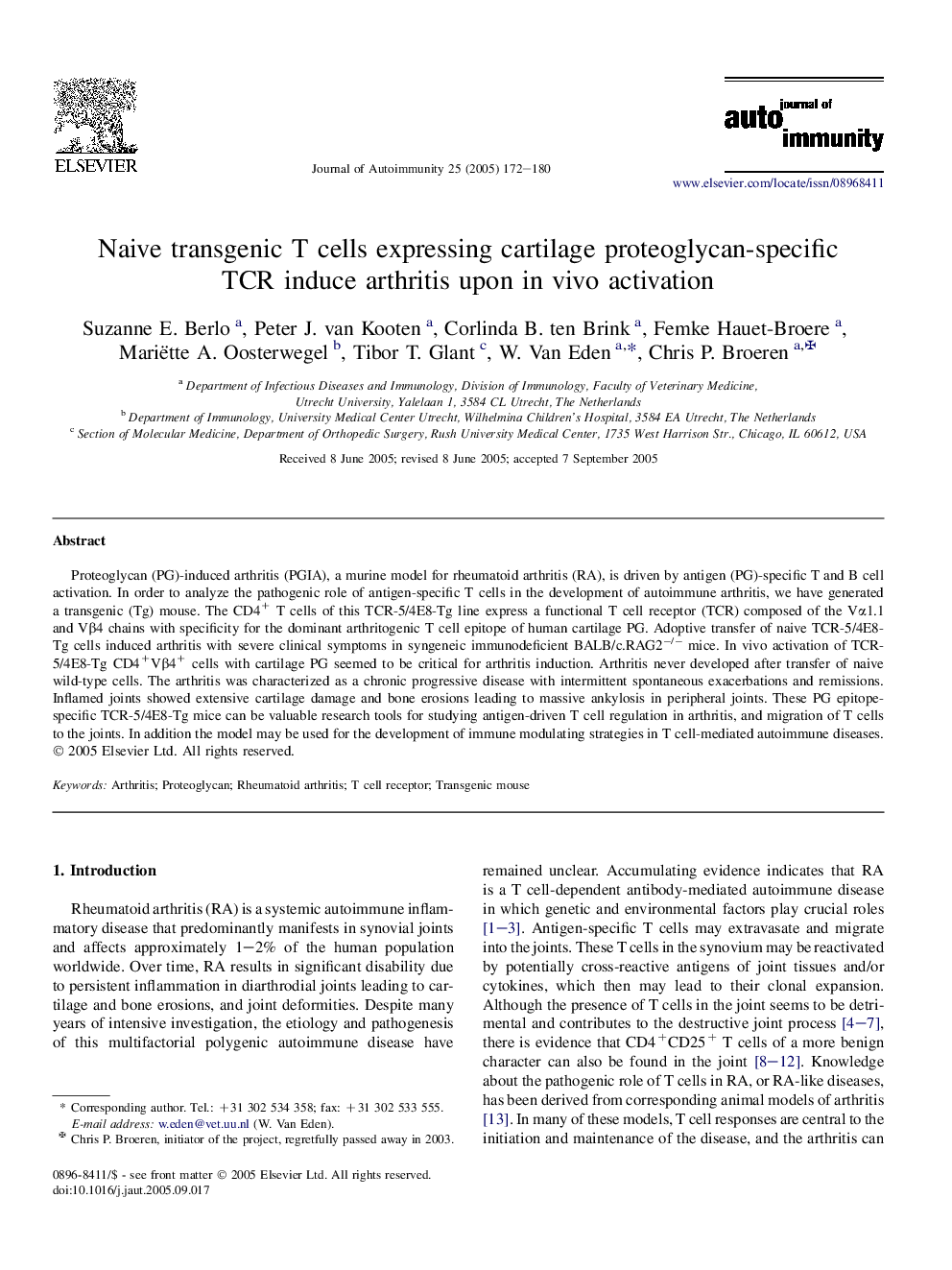| کد مقاله | کد نشریه | سال انتشار | مقاله انگلیسی | نسخه تمام متن |
|---|---|---|---|---|
| 9267890 | 1218811 | 2005 | 9 صفحه PDF | دانلود رایگان |
عنوان انگلیسی مقاله ISI
Naive transgenic T cells expressing cartilage proteoglycan-specific TCR induce arthritis upon in vivo activation
دانلود مقاله + سفارش ترجمه
دانلود مقاله ISI انگلیسی
رایگان برای ایرانیان
کلمات کلیدی
موضوعات مرتبط
علوم زیستی و بیوفناوری
ایمنی شناسی و میکروب شناسی
ایمونولوژی
پیش نمایش صفحه اول مقاله

چکیده انگلیسی
Proteoglycan (PG)-induced arthritis (PGIA), a murine model for rheumatoid arthritis (RA), is driven by antigen (PG)-specific T and B cell activation. In order to analyze the pathogenic role of antigen-specific T cells in the development of autoimmune arthritis, we have generated a transgenic (Tg) mouse. The CD4+ T cells of this TCR-5/4E8-Tg line express a functional T cell receptor (TCR) composed of the Vα1.1 and Vβ4 chains with specificity for the dominant arthritogenic T cell epitope of human cartilage PG. Adoptive transfer of naive TCR-5/4E8-Tg cells induced arthritis with severe clinical symptoms in syngeneic immunodeficient BALB/c.RAG2â/â mice. In vivo activation of TCR-5/4E8-Tg CD4+Vβ4+ cells with cartilage PG seemed to be critical for arthritis induction. Arthritis never developed after transfer of naive wild-type cells. The arthritis was characterized as a chronic progressive disease with intermittent spontaneous exacerbations and remissions. Inflamed joints showed extensive cartilage damage and bone erosions leading to massive ankylosis in peripheral joints. These PG epitope-specific TCR-5/4E8-Tg mice can be valuable research tools for studying antigen-driven T cell regulation in arthritis, and migration of T cells to the joints. In addition the model may be used for the development of immune modulating strategies in T cell-mediated autoimmune diseases.
ناشر
Database: Elsevier - ScienceDirect (ساینس دایرکت)
Journal: Journal of Autoimmunity - Volume 25, Issue 3, November 2005, Pages 172-180
Journal: Journal of Autoimmunity - Volume 25, Issue 3, November 2005, Pages 172-180
نویسندگان
Suzanne E. Berlo, Peter J. van Kooten, Corlinda B. ten Brink, Femke Hauet-Broere, Mariëtte A. Oosterwegel, Tibor T. Glant, W. Van Eden, Chris P. Broeren,